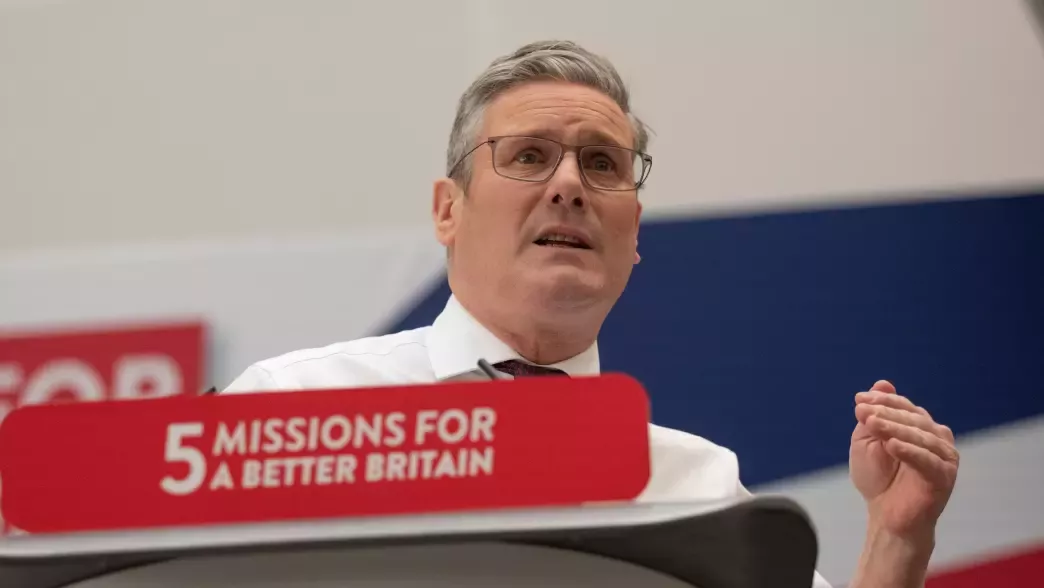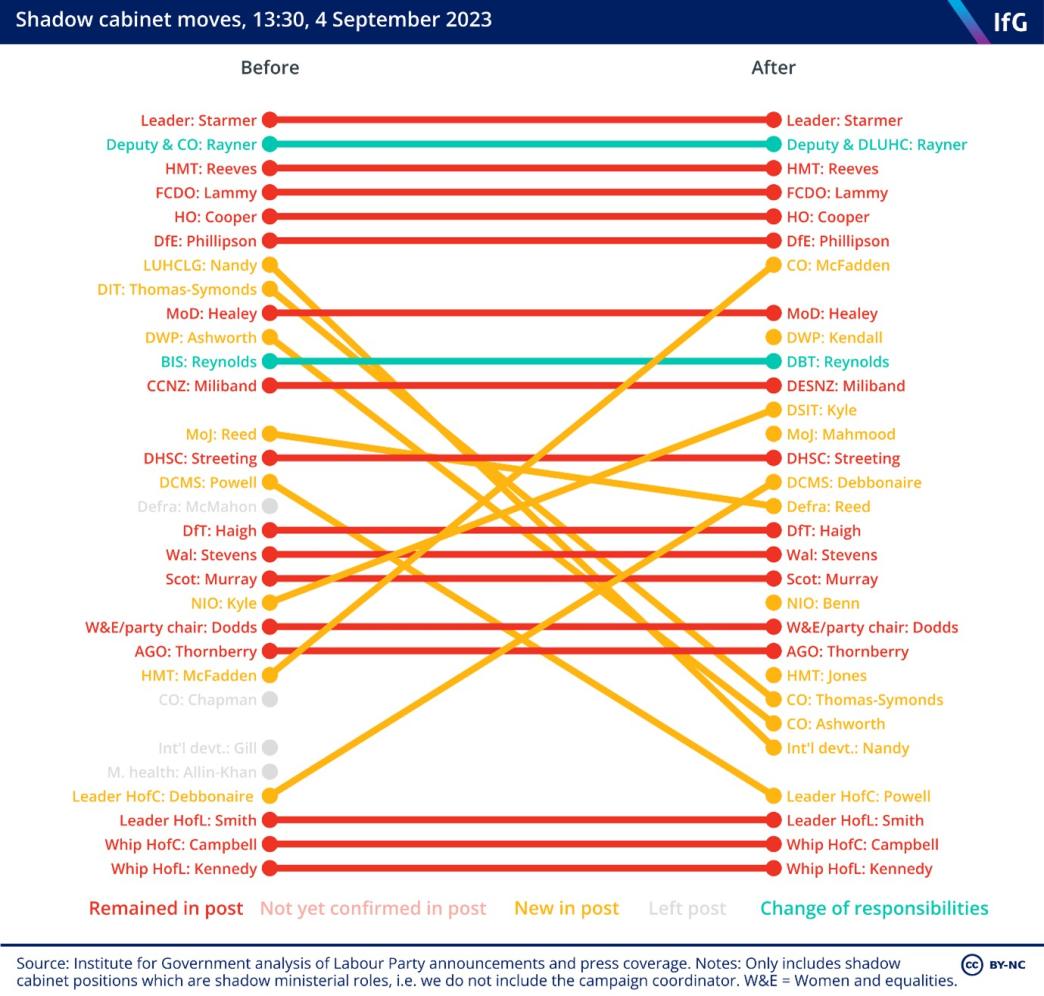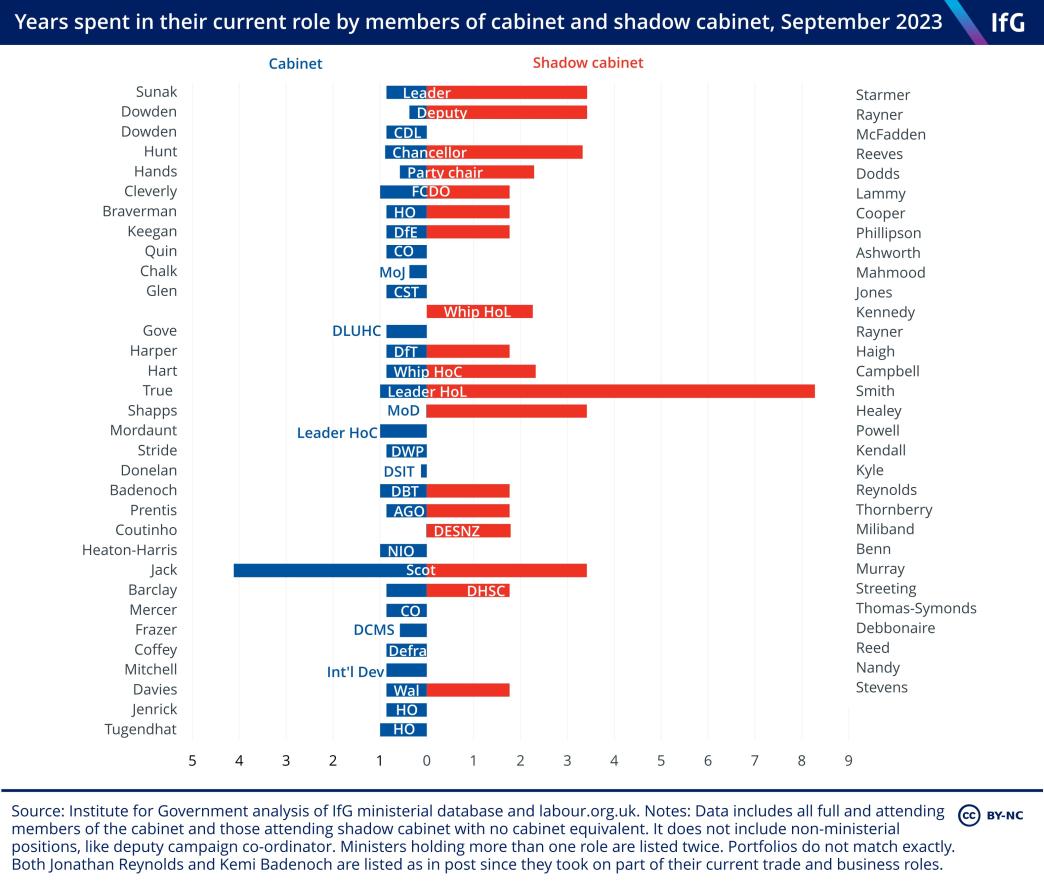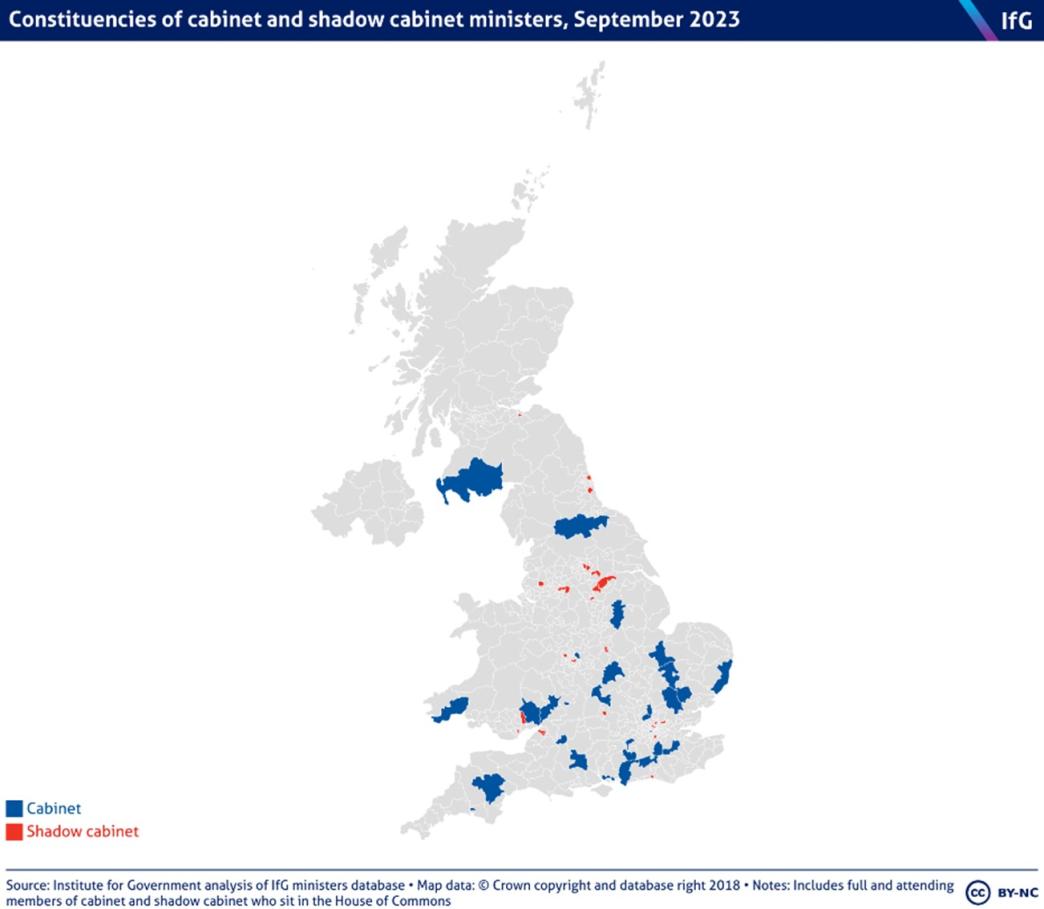This should be Labour's last pre-election reshuffle
Keir Starmer has made some big changes to Labour's shadow ministerial team.

Keir Starmer has made some significant changes to Labour's shadow ministerial team. He would be wise not to make any more ahead of the next general election
Sir Keir Starmer has made some big changes to his shadow ministerial team, moving Labour's deputy leader Angela Rayner to the levelling up brief and promoting Shabana Mahmood to become shadow justice secretary.

Rishi Sunak’s new machinery appears to be here to stay
Starmer’s shadow departmental set-up is now largely in line with the current machinery of government – a sensible move. Reversing the recent changes made by Rishi Sunak would be a costly and time-consuming post-election task were Labour to enter government, and some of the changes made by the prime minister– such as the creation of a separate net zero department – map on well to Starmer’s priorities.
Shadow business secretary Jonathan Reynolds has taken on the international trade brief as well, matching up to his counterpart Kemi Badenoch, and Peter Kyle has been made new shadow science, innovation and technology secretary to shadow the new department created by Sunak in February.

This alignment with the current machinery of government also involved downgrading the position of shadow cabinet minister for mental health to be a non-cabinet role – prompting the occupant of the job, Rosena Allin-Khan, to resign. What has been left more open is how international development will be run. Lisa Nandy has been appointed as cabinet-level shadow minister for development, but David Lammy is still the shadow secretary for foreign, commonwealth and development affairs – leaving it unclear whether a Labour government would recreate a separate international development department or not. Angela Rayner’s ‘future of work’ brief looks like it would move with her to the Department for Levelling Up, Housing and Communities (DLUHC) if Labour wins the next general election – a move which may well make sense given the key role of skills and employment policies in reducing regional inequalities, but one which will require careful co-ordination with the Department for Education and Department for Work and Pensions.
Another theme of the reshuffle has been the promotion of experience – there are now six former ministers in the shadow cabinet, up from five. Liz Kendall does not have ministerial experience but is a former leadership candidate and has held a number of shadow roles, while Hilary Benn brings his experience as chair of the Commons Brexit select committee to his new shadow Northern Ireland secretary role. Ed Miliband has also retained his role shadowing a retitled energy security and net zero department having filled the equivalent role in the last Labour government.
Rayner will need to set out Labour’s approach to addressing regional inequalities and English devolution
One of the biggest movers was Angela Rayner, deputy leader of the party, who has given up the responsibility of shadowing the Cabinet Office to become shadow levelling up secretary.
The appointment of Starmer's deputy to the levelling up and housing brief could be a statement that reducing regional inequalities and devolving more powers would be a priority for a future Labour government. But there are some key questions that Angela Rayner will need to answer as Labour develops its plans for government.
First, how does addressing regional inequalities fit with Keir Starmer’s five missions? These are intended to be the guiding priorities for a future Labour government, but none are explicitly about reducing regional inequalities in the way ‘levelling up’ is for the current government. Several of the missions, to deliver “growth in every part of the country” and to equalise “opportunity for all”, have a regional dimension. But Rayner will need to establish the role DLUHC and regional and local government would play in delivering them, and determine what other cross-government structures might be needed, such as Lisa Nandy’s proposal of an independent council to track progress on regional inequalities. 6 https://labourlist.org/2023/01/nandy-announces-labour-would-scrap-government-levelling-up-missions/
Second, how will Labour take forward devolution across England? The Brown Commission, published late last year, set out how Labour might approach devolving more powers to combined authorities and other local governments within England. Starmer has promised a ‘Take Back Control Bill’ allowing all parts of England to draw down powers from Whitehall. But Labour is yet to provide more detail on these plans. What powers will be on offer for both new and existing devolved authorities? And what will be the process to agree further devolution? For example, will Labour establish a right for any area to request a power that has been devolved elsewhere in England, as the IfG has previously recommended.
It is also worth noting that many of the shadow cabinet, like Rayner, represent northern constituencies – far more than the current cabinet, who are generally MPs for more rural southern or midlands constituencies. Levelling up and regional inequality could well be a key battleground towards a general election in the next 18 months.

McFadden brings experience – but has a sprawling brief
Angela Rayner’s move means there is a new occupant of the crucial role shadowing Oliver Dowden as chancellor of the duchy of Lancaster (CDL). This is a flexible role but usually includes acting as a broker for the leader, party management and campaigning, and crucially, taking responsibility for much of the everyday working of government, including civil service management and ethics in government.
Rayner’s replacement is Pat McFadden, previously shadow chief secretary to the Treasury, suggesting that Starmer recognises how crucial the CDL role has become in driving progress in government. McFadden has extensive experience as a former minister under the Blair and Brown governments, including at the centre of government – he also served as political secretary to Blair.
The new shadow CDL will have to grapple with how a Labour government would organise itself around its missions, and how it will approach cross-cutting policy making – something Whitehall finds particularly difficult but which is of vital importance to the civil service and government generally. And he will also have to work out how Labour will approach civil service reform. Labour reportedly has charged Starmer’s recently appointed chief of staff Sue Gray with coming up with a plan for reforming Whitehall to suit Labour's priorities should the party form the next government but in government that work would be the responsibility of and flow through the Cabinet Office under the CDL.
McFadden’s other challenge – or Starmer’s – will be to manage a Cabinet Office brief which may be over-stuffed with ministers. Including Anneliese Dodds, who remains party chair and minister for women and equalities, there will be four shadow cabinet ministers covering the Cabinet Office brief. Lots of these may in practice be campaigning jobs in the run-up to the election, but Starmer may face a challenge in finding a home for them post-election were he to win.
Relative stability in the big public services jobs
While there has been major change elsewhere, the key public services shadow ministers have largely stayed put – with Yvette Cooper remaining shadow home secretary, Bridget Phillipson as shadow education secretary and Wes Streeting continuing as shadow health secretary. This may reflect Labour’s confidence that their messages are hitting home on public services, but could also be a recognition of the complexity of all of these briefs – it will help to have experienced heads who fully know these issues, particularly given their centrality to Starmer’s five ‘missions’.
Where there has been change is the person shadowing the Ministry of Justice (MoJ), where Steve Reed was replaced by Shabana Mahmood, who previously served as campaign co-ordinator. Mahmood takes on her first full shadow secretary of state role, but she has relevant experience, having served as shadow prisons minister a decade ago and worked as a barrister before entering parliament. Her relationship with Yvette Cooper as shadow home secretary will be crucial to her success in the role. Decisions around policing, in particular, have a major knock-on effect on the criminal justice system, so good co-ordination between the two departments is crucial.
Despite receiving more money in recent years, courts have been struggling. While the twin effects of the pandemic and the barristers’ strike had severe effects on performance, crown courts in particular have struggled to process more cases, even as these problems receded. This has contributed to record backlogs, delays of more than two years, and an increasing number of suspects awaiting trial on remand.
Further downstream, the prison system is also on its knees. A recent population boom, driven by increased sentences and the courts working their way through the backlog, is set to continue into the coming years, with the MoJ projecting a population of 106,300 by March 2027, around 20,000 higher than current levels.
Changes are significant – but they should be the last before the next election
The Labour reshuffle has been expected for some time and briefed about extensively, but, unlike Rishi Sunak, Keir Starmer seems to have opted for one big reshuffle. Of the 31 shadow cabinet members,15 are in a new job, or at least have major new responsibilities. The timing is a challenge for the new front benchers: those who have moved will have a short time to get to grips with their new briefs before the party conference.
But it is welcome that Starmer has now completed a reshuffle that looks set to last until the general election. As we argued in a recent paper, experience shadowing a brief is hugely helpful if you become a minister in the equivalent role. Even those who moved a year before the election, in 1996 and 2009, often struggled with their briefs in government, or were moved on again quickly – just one appointee from the 2009 Conservative reshuffle kept his job on reaching government.
With pre-election access talks between the opposition and the civil service likely to start by January, if not this autumn, Starmer needs to ensure that the plans discussed and relationships developed are those that will pay dividends if his party does win the next general election. 8 https://www.thetimes.co.uk/article/keir-starmer-hopes-sue-gray-will-be-chief-of-staff-by-autumn-hfg58lvl5 This reshuffle suggests that Starmer has accepted that advice and settled on the team that will fight the election with him and prepare for what a Labour government could look like in just over a year’s time.
- Topic
- Ministers
- Keywords
- Shadow cabinet Official opposition Government reshuffle General election Machinery of government
- Political party
- Labour
- Public figures
- Keir Starmer Angela Rayner
- Publisher
- Institute for Government